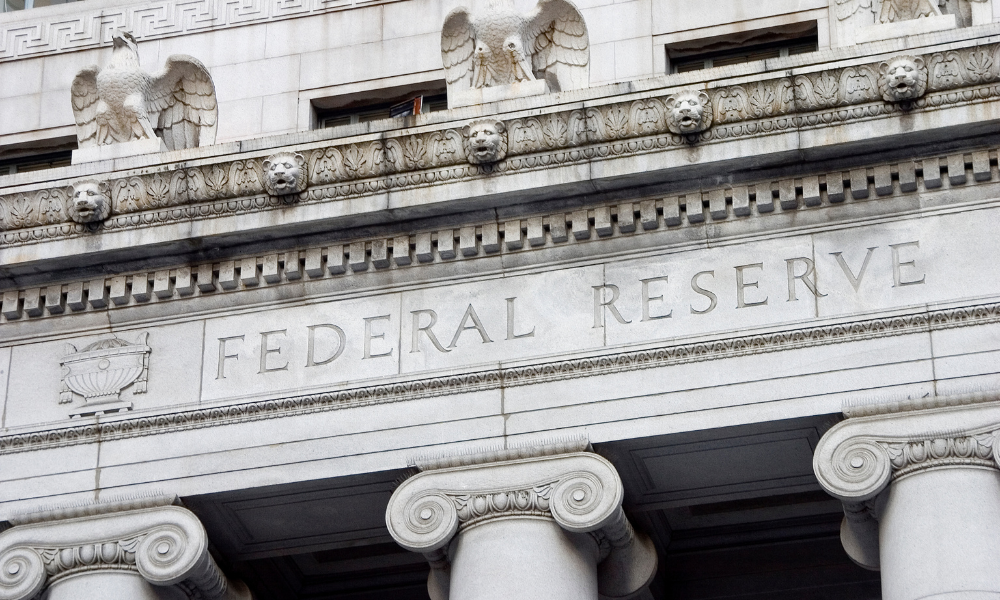

by Catarina Saraiva
Federal Reserve Chair Jerome Powell made clear he’s ready to defend the US central bank from political pressure following the re-election of Donald Trump, saying he wouldn’t resign if asked and insisting the incoming president doesn’t have the power to fire him or other senior Fed leaders.
“No,” Powell said firmly on Thursday, when asked whether he would step aside if Trump asked for his resignation.
During a press conference following the Fed’s two-day policy meeting, Powell said repeatedly that Trump — who explored firing the Fed chief during his first term in the White House — lacks the legal authority to demote or remove the chair or other senior Fed officials in Washington.
“What Powell is saying, in making the forceful statement that no one can be demoted, is that the Fed’s leadership is all in this together,” said Peter Conti-Brown, a professor and Fed historian at the Wharton School of the University of Pennsylvania. “I see this as Powell’s declaration that the president-elect is going to have his say on shaping the Federal Reserve, but not until there are vacancies to be filled.”
Powell’s remarks were striking as he worked hard to dodge every other politically-charged question lobbed at him from reporters. He strictly avoided speculating on what policies might emerge from the incoming administration. But he readily weighed in when the matter involved protecting the institution he’s served since 2012.
“He’s a firm believer in the importance of Fed independence, and quitting voluntarily due to criticism from a president would show that the Fed isn’t independent,” Ian Katz, managing director at Capital Alpha Partners, wrote in a note to clients.
The comments, just two days after Trump’s re-election, portend the power struggle that may lie ahead between the central bank and a president who insists he should have a say on interest-rate policy.
Trump, who won Tuesday’s election by an unexpectedly large margin, has often blasted Powell. Though Trump appointed him to the chair in 2018, he then quickly pivoted to publicly urging him to stop raising rates later in the year.
Powell, a staunch institutionalist reared among Washington’s elite, has often spoken about the importance of central bank independence. In an interview earlier this year, he cast his desire to serve out his full term as a part of that.
Trump, for his part, has backed away from some of his more provocative statements about how much a president should influence the central bank. He told Bloomberg in June that he’d let Powell serve out his current term, which ends in 2026. But he’s also said a president should be allowed to at least make suggestions on policy.
One potential target for the Trump administration is Vice Chair for Supervision Michael Barr, the Fed’s top banking regulator who Republicans have repeatedly criticized.
Speaking later Thursday on Bloomberg Television, Republican Senator Bill Hagerty, a leading contender to join Trump’s cabinet, said “everything should be on the table” when it comes to considering Barr’s position.
“I would look at any legal option that we might have to make a change there,” he said.
Ultimately, any attempt at firing or demoting Powell or his colleagues would probably face a battle in the courts. Many legal scholars have maintained that the president likely doesn’t have the authority to fire the central bank chair, but there could be a legal pathway for demoting the vice chair for supervision, some say.
The Fed, meantime, delivered a quarter-point interest-rate cut on Thursday — the second-straight reduction. While the Fed is expected to lower rates further in the coming months, investors and economists have pared back expectations for how low rates will fall this cutting cycle, partly in response to Trump’s election.
Trump has promised to deploy more aggressive tariffs, crack down on immigration and extend tax cuts — policies that could put upward pressure on prices and long-term interest rates.
Powell reiterated that future policy decisions will depend on incoming economic data, and the Fed won’t try to anticipate fiscal or trade policy.
“We don’t know what the timing and substance of any policy changes will be,” Powell said. “We therefore don’t know what the effects on the economy would be, specifically whether and to what extent those policies would matter for the achievement of our goal variables: maximum employment and price stability.”
The Fed chair committed to additional rate cuts in the future but not a timeline, said Lindsey Piegza, chief economist for Stifel Financial Corp. He left “the door open for a potential policy pause at that December meeting should the data remain as solid as it has and should inflation remain as sticky as it has.”
Powell noted the economy has been stronger than expected, and also pointed to a higher-than-hoped September inflation reading.
Though he insisted all options remain on the table, the comments opened the possibility the Fed might take a pause from lowering rates at its December gathering — the final meeting of the year.
“We’ll make a decision as we get to December,” Powell said, adding that policymakers will get more data before then.

Executives from LPL Financial, Cresset Partners hired for key roles.

Geopolitical tension has been managed well by the markets.

December cut is still a possiblity.

Canada, China among nations to react to president-elect's comments.

For several years, Leech allegedly favored some clients in trade allocations, at the cost of others, amounting to $600 million, according to the Department of Justice.
Streamline your outreach with Aidentified's AI-driven solutions
This season’s market volatility: Positioning for rate relief, income growth and the AI rebound
